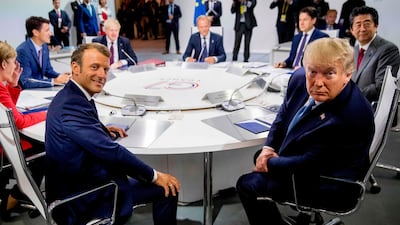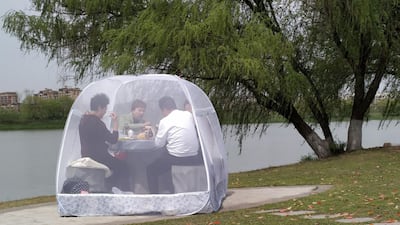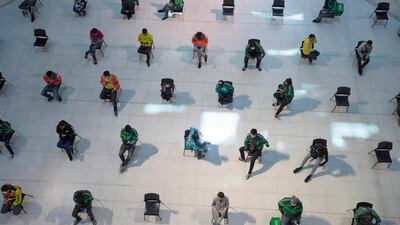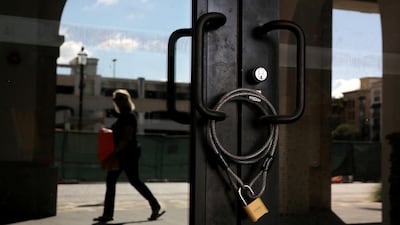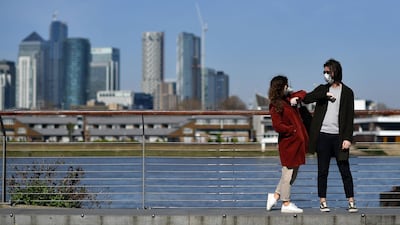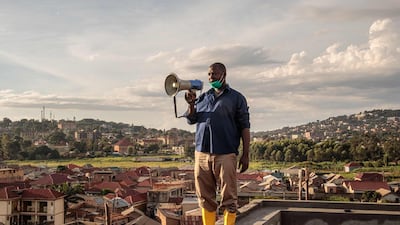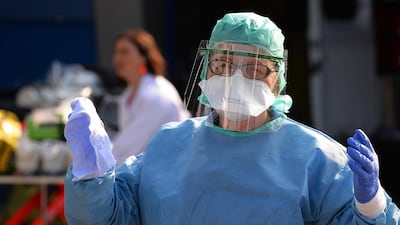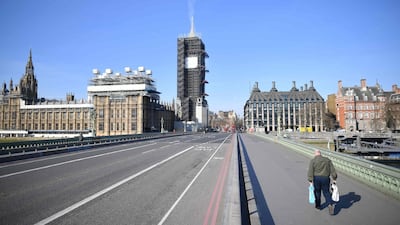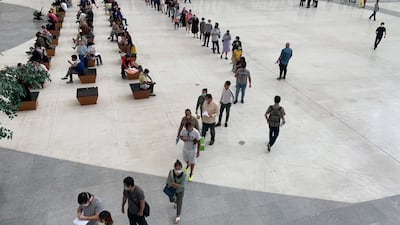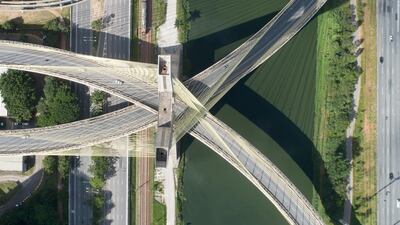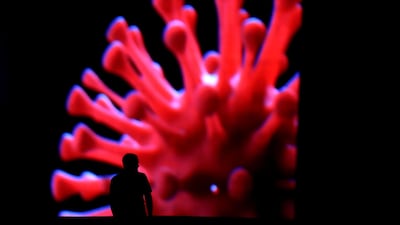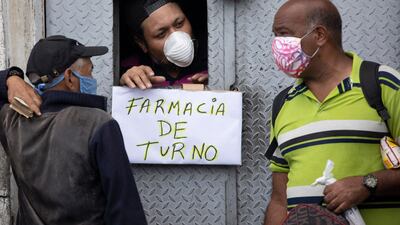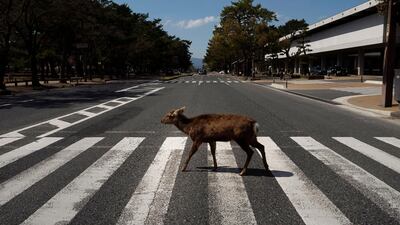Facing the battle of their lives against the global coronavirus pandemic, world leaders have turned on each other about misinformation on Covid-19.
The most conspicuous battle in the war of information has been between China and the US.
After a video conference of G7 foreign ministers on Wednesday, US Secretary of State Mike Pompeo said all were "deeply aware of the disinformation campaign the Chinese Communist Party is engaged in to try to deflect from what has really taken place".
Blaming China for the Covid-19 outbreak has become an important strategy in US President Donald Trump's re-election campaign.
Mr Trump has regularly referred to Covid-19 as the “China virus” and dismissed any suggestion that this might be racist.
Mr Pompeo caused a stand-off in the G7 with his determination to use the name "Wuhan virus" in the planned communique.
While other world leaders have used regular addresses to outline new protective measures and try to galvanise national responses, Mr Trump’s briefings resemble his election rallies.
As tension across the Pacific has risen, Chinese Communist Party officials have blamed America for the spread of the virus.
These kinds of rumours have been circulating for more than a month.
Yanzhong Huang, of the Council on Foreign Relations, said one widely shared conspiracy theory in China was that US troops had deliberately left the virus at the Hunan Seafood Market in Wuhan, where the outbreak is thought to have originated.
“Rumours thrive on fear and uncertainty, and the outbreak of the novel coronavirus offers plenty of both,” Mr Yanzhong said.
The West has also not been immune to these kinds of rumours.
Conjecture on messaging apps in Europe and the US has claimed the virus was activated by the Chinese mobile 5G infrastructure or that Covid-19 was developed in a Chinese laboratory.
Members of the G7 lashed out at each other. As he announced a ban on travel from Europe, Mr Trump blamed European travellers for seeding “clusters” of the coronavirus in the US.
French President Emmanuel Macron threatened UK Prime Minister Boris Johnson in a call at the end of last week.
Mr Macron said he would block all travel across the English Channel if Britain did not do more to contain the coronavirus.
Stopping the spread of fake information has become one of the major priorities for the EU, which has identified Russia and its media outlets as fuelling malign theories about Covid-19.
“Spreading disinformation is playing with people’s lives,” the EU’s foreign policy head Josep Borrell said after a March 24 video conference with European foreign ministers.
“Disinformation can kill."
A report by the EU claimed Russian media had launched a “significant disinformation campaign” against the West to worsen the impact of the coronavirus.
“The coronavirus is a relentless and daily topic in pro-Kremlin media, including state-owned outlets,” the report said.
The EU said that among the rumours being spread by pro-Kremlin and Russian state media were theories that Europeans were in quarantine but migrants could move freely.
It said others included that the EU could impose mass vaccinations and that the coronavirus was a hoax and did not exist.
In February, Russia’s Channel 1 broadcast accusations that Britain and the US had deliberately spread the coronavirus and were sitting on a vaccine.
The Kremlin denied these allegations, saying they were unfounded and lacked common sense.
President Vladimir Putin has accused his foes of attacking Russia by spreading fake news about coronavirus to sow panic.
Mr Yanzhong said these claims of misinformation are standing in the way of real progress on Covid-19.
“The virus is now rapidly spreading worldwide with social, political, and economic consequences wherever it goes," he said.
"Identifying its origin would help experts and governments to hone the best counter-measures to stem its spread and prevent such outbreaks in the future.
“Conspiracy theories have poisoned the atmosphere for US-Chinese collaboration in addressing the outbreak, which might otherwise have presented an opportunity to reset the soured relationship."
